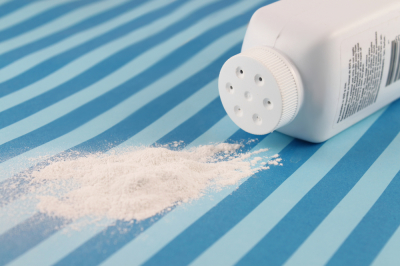A Wisconsin man alleges he developed mesothelioma, a rare and deadly form of cancer associated with exposure to asbestos, as a result of his mother’s use of talcum powder that contained the toxic substance
Steven P. Schultz and Kimberly Schultz filed a lawsuit on January 7 in the Superior Court of Delaware against Colgate-Palmolive Company, Coty, Inc., Cyprus Amax Minerals, Metropolitan Life Insurance Company, Pfizer, Inc., and Whittaker Clark & Daniels, Inc., claiming that his mother used a number of talcum powder products that contained asbestos for decades.
According to the complaint (PDF), Schultz’s mother used asbestos-containing Cashmere Bouquet Talcum Powder from about 1967 through the 70s, and then Coty Airspun Face Powder from 1967 through the 1980s. The lawsuit also indicates that he was exposed to asbestos-containing talc by Cybrus Amax Minierals Company, the successor to Sierra Talc Company and United Talc Company, as well as by Pfizer and Whittaker Clark & Daniels.
Talcum powder is most commonly associated with baby powder, which is used to prevent diaper rash and keep skin smooth. However, it is also popular among adult women, for hygiene purposes. The lawsuit comes amid growing concerns about the link between talcum powder and ovarian cancer, as evidence of talc has been found inside many tumors among consistent users of the products. However, it also may be too closely related to asbestos, resulting in a risk of illnesses like asbestosis and mesothelioma.
While most uses of asbestos have been banned for more than 30 years, given the long latency period between exposure to the substance and the development of mesothelioma, asbestos exposure continues to cause up to 15,000 deaths each year.
In addition to industrial exposure to asbestos-containing products, such as brake pads and gaskets, many cases diagnosed in recent years have been related to second-hand asbestos exposure, due to fibres carried home on the clothes or in the hair of individuals working directly with the substance.
A number of studies have also suggested that asbestos contained in many older talcum powder products may cause the development of mesothelioma and other ailments generally associated with asbestos.
In October 2014, a study published in the International Journal of Occupational and Environmental Health identified a potential link between an unnamed, but popular, brand of talcum powder and asbestos exposure, suggesting that use of the product may have caused the death of at least one unidentified woman due to mesothelioma.
Concerns about the link between mesothelioma and talcum powder stretch back decades, with local health officials in Baltimore requesting that the FDA investigate asbestos in talc powder as far back as 1972.
In April, Colgate-Palmolive was ordered to pay $1.4 million to a woman diagnosed with mesothelioma after exposure to Cashmere Bouquet talc powder.
While it is unclear how many claims of second-hand asbestos exposure due to talcum powder use have been reported, they are likely extremely rare.
In this latest lawsuit, Schultz claims that he experienced pain and suffering, mental anguish, medical bills, physical impairment, permanent disability, loss of earning capacity and loss of enjoyment of life as a result of exposure to asbestos in his mother’s talcum powder. Kimberly Schultz seeks damages for mental anguish and for being deprived of pecuniary benefits, support and household services as a result of her husband’s illness.
Source – About Lawsuits



